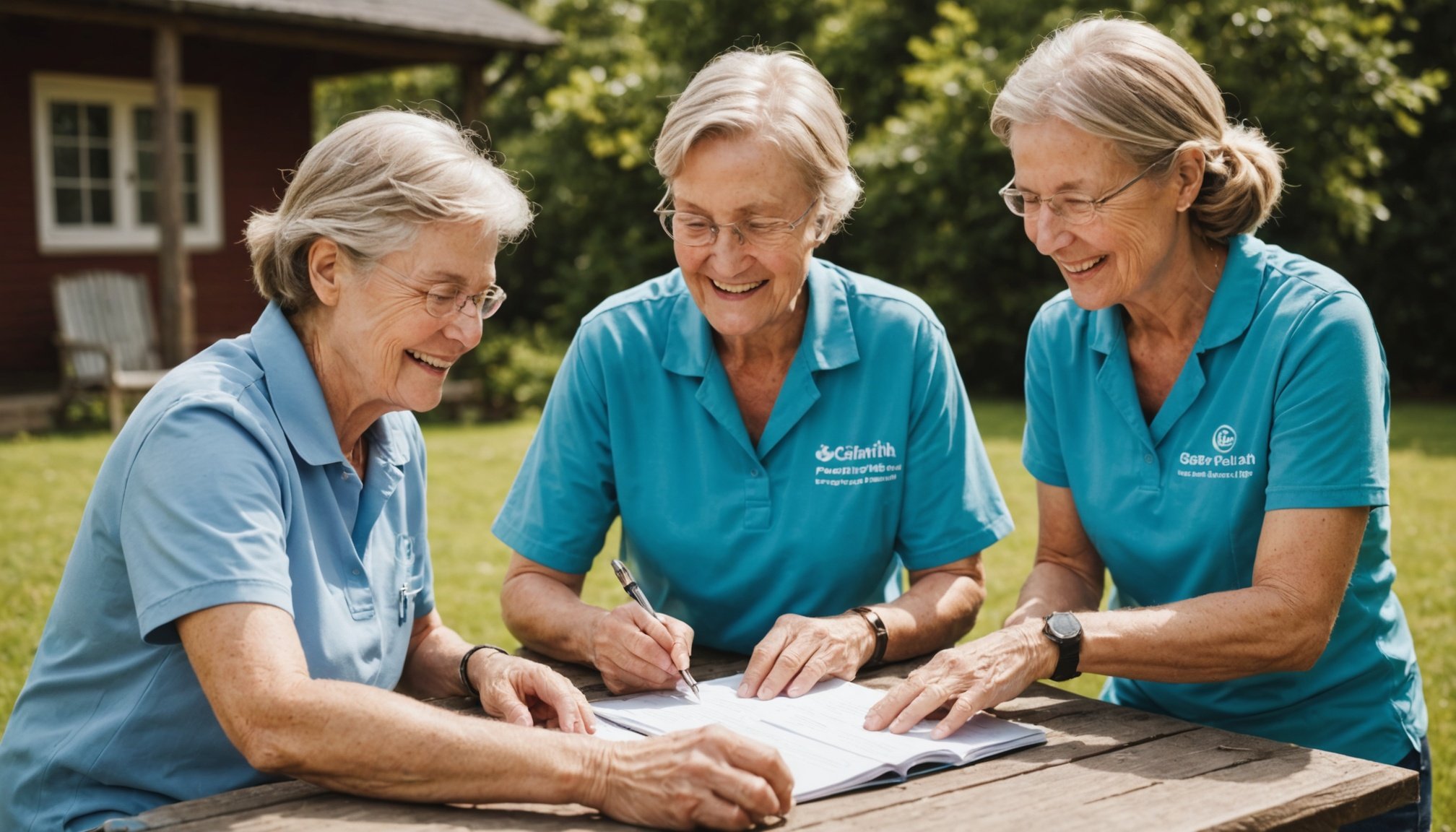The Impact of Volunteering on Mental Health
Volunteering is more than just a selfless act; it significantly contributes to mental health benefits, particularly for retirees. Many retirees face common challenges, such as loneliness and a lack of purpose, which can adversely impact their emotional well-being.
Studies have consistently demonstrated a strong connection between volunteering and enhanced mental health outcomes. Engaging in volunteer work offers retirees a chance to be physically and mentally active, fostering a sense of belonging and community connection. This, in turn, can alleviate anxiety and reduce depressive symptoms, leading to notable improvements in emotional well-being.
In the same genre : Evaluating the Impact of Silver Diamine Fluoride on Cavity Prevention in Young Children
Additionally, active volunteers frequently report experiencing positive emotional and psychological effects. They often feel a boost in self-esteem and gain a renewed sense of purpose. Witnessing the tangible impact of their efforts can bring about immense satisfaction and contentment. Moreover, volunteers build social networks and develop meaningful relationships, which play a crucial role in maintaining a healthy mental state.
By participating in volunteering activities, retirees not only benefit society but also experience personal growth and enhanced quality of life. Engaging in such rewarding tasks can be an essential tool, promoting healthier, happier lifestyles.
Also read : Exploring Breakthroughs in Nutritional Strategies for Pediatric Migraine Management
Personal Stories of Retirees
Exploring the profound impact of retiree volunteering stories can provide invaluable insights into their transformative journey. Many retirees find that engaging in volunteer work enriches their lives significantly. Let’s delve into some compelling accounts and discern common themes among these inspirational journeys.
Case Study: A Retiree’s Journey Through Volunteering
Meet Mary, a retired teacher, who chose to volunteer at a local literacy centre. She found immense fulfilment in helping others. Mary’s story is a vivid illustration of how retirees can undergo a mental health transformation. Her involvement contributed to a sense of purpose and community, improving her emotional well-being significantly. This case exemplifies the benefits of helping others and the reciprocal happiness it generates.
Testimonials from Various Retirees
Retirees like John and Sarah, who spend their time creating care packages for the homeless, echo similar sentiments. For John, the act of helping others serves as an antidote to loneliness. Likewise, Sarah finds her days enriched with new friendships and stories.
Common Themes in Volunteer Experiences
Among various narratives, themes of community and connection consistently emerge. These experiences highlight how volunteering fosters bonds, combats solitude, and leads to personal growth. Whether teaching, crafting, or organising community events, retirees find joy and purpose in these meaningful endeavours.
Types of Volunteering Beneficial for Retirees
Engaging in community service offers retirees a multitude of benefits, particularly in boosting mental well-being. Types of volunteering vary, with each avenue providing unique advantages and ways to contribute positively to society.
Mentoring and Tutoring Opportunities
Retirees can harness their life experiences and skills by getting involved in mentoring or tutoring programs. Schools, community centres, and online platforms are constantly on the lookout for experienced individuals to help guide and educate young learners or adults seeking new skills. This form of volunteering not only enriches the knowledge base of others but also enhances a retiree’s sense of purpose and cognitive abilities, directly contributing to improved mental health.
Environmental Conservation Initiatives
For those passionate about nature, participating in environmental conservation projects is highly rewarding. Joining local initiatives related to tree planting, wildlife protection, or beach clean-ups allows retirees to engage physically while supporting ecosystems. Engaging in these activities promotes both physical well-being and mental satisfaction, knowing they are making a tangible difference.
Health and Wellness Programs
Retirees interested in promoting a healthier lifestyle within their communities can volunteer for health and wellness programs. This might include assisting at local health fairs, supporting fitness classes, or helping with nutrition advice sessions. By contributing to wellness initiatives, retirees can encourage healthier lifestyles, thereby uplift their own mental well-being through meaningful community interaction.
Tips for Getting Involved in Volunteering
Volunteering offers a meaningful avenue for community engagement and personal development. To effectively start volunteering, consider these tips. Begin by researching local community centres, schools, or non-profit organisations, as they often have numerous opportunities available. These are excellent starting points to identify roles that fit your skills and interests.
For retirees, choosing suitable volunteer roles is crucial for both enjoyment and sustainability. Evaluate your past professional experiences or hobbies to find roles that match your expertise. For instance, if you were a teacher, tutoring might be fulfilling. Engaging in activities you’re passionate about ensures a rewarding experience and maximises your impact.
Matching personal interests with volunteer work enhances fulfilment and ensures long-term participation. When your volunteer role resonates with your personal values or interests, you’re more likely to stay committed. Whether it’s working with animals, supporting education, or environmental conservation, aligning your interests with your work contributes holistically to community engagement and personal satisfaction.
By considering these factors, you not only find suitable roles but also enhance your experience, building a rewarding volunteering journey.
Potential Challenges in Volunteering
Volunteering offers countless benefits, but it is not without its hurdles. For retirees, understanding and addressing the challenges of volunteering is crucial for a fulfilling experience.
Physical Limitations and Volunteer Roles
Retirees may encounter physical barriers that limit their ability to participate in certain volunteer activities. This could include tasks requiring extensive mobility or endurance. However, there are numerous opportunities that accommodate varying physical abilities, such as administrative work, mentoring, or virtual volunteering. By matching one’s abilities to appropriate roles, retirees can contribute significantly without undue strain.
Navigating Time Commitments
Another barrier for retirees involves managing time commitments. Many may worry about over-committing or how volunteering will fit into their existing schedule. To address these concerns, it is important to seek roles with flexible hours or those that allow working from home. Starting with short-term projects or trial periods can also be an effective strategy to gauge one’s capacity for commitment.
Overcoming Initial Hesitations
Initial hesitations often stem from fears of inadequacy or uncertainty about where to start. Addressing obstacles like these involves open discussions with volunteer coordinators and fellow volunteers. Sharing experiences and asking questions can demystify the process, encouraging retirees to take that first step towards a rewarding volunteering journey.











